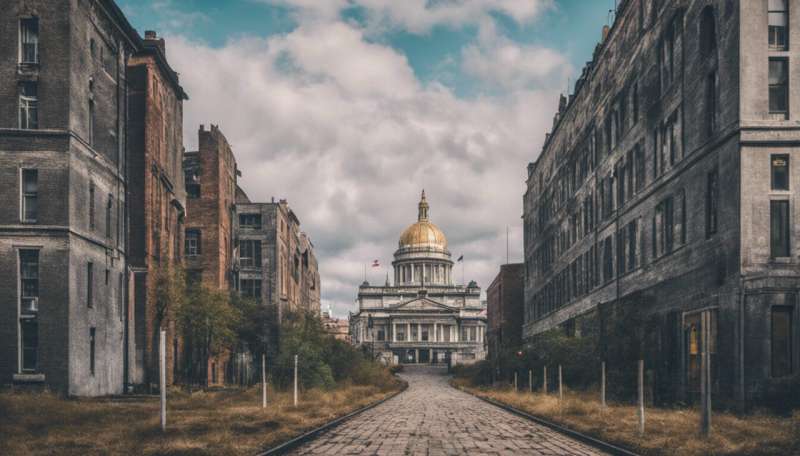Local lockdowns could lead to civil disorder, and here is why

The city of Leicester, in the UK's Midlands region, is facing a lockdown following a recent spike in COVID cases. The decision was confirmed by UK home secretary, , on the BBC's Andrew Marr Show on Sunday, June 27.
The prospect of these being introduced in the UK was announced by the health secretary, Matt Hancock, at a daily briefing on June 7. National lockdowns create significant economic and social harms, so moving beyond them is a priority for governments everywhere—and local lockdowns have been proffered as the solution.
Local lockdowns are not new. Indeed, the first lockdown of the pandemic was in the city of Wuhan in China. More recently, have also started implementing this strategy.
Local lockdowns have frequently gone hand in hand with draconian police enforcement and sophisticated but intrusive systems of tracking, tracing and isolating that rely on public .
These systems are important because they help to identify local outbreaks quickly and they allow control measures to be rapidly imposed. But it will be months before the UK has such a . So, without it, by the time an outbreak is detected locally, it may already be too late for a focused lockdown to have any effect.
If a lockdown is imposed, it has to be enforced, but it's unclear what legal powers would be available to allow a city to be effectively cut off from the rest of England, nor how such laws would be .
In the absence of any workable means of identifying who has the virus, there is a real danger that imposing control measures will be seen as illegitimate by large sections of the .
Perhaps the most challenging aspect of the proposal put forward by the UK government is that local lockdowns could take place not just between but within the same town or city—hyperlocal lockdowns. The ideas is that you can rapidly impose a hyperlocal lockdown to snuff out the outbreak without harming economic recovery and normal social functioning elsewhere.
Profound divisions
The difficulty is that, in towns and cities, small geographical areas often intersect with profound socioeconomic and ethnic divisions. For example, the north London borough of Enfield, despite being in the UK's most affluent city, is relatively deprived. Within the borough there are also stark differences—those in the more affluent west are far more likely to be white and live on average ten years longer than those in the relatively deprived and more ethnically mixed east. Research has shown how these factors of deprivation played an important role in the spread of rioting to Enfield during the English riots of August .
We already know that those in lower socioeconomic positions and people from black and other minority communities are far more susceptible to the . Poor and minority populations are not just far more likely to die from the virus but also experience hardships from control measures relative to those living in white and economically advantaged . So it's predictable that local lockdown will be far more likely to fall on disadvantaged and ethnically mixed communities. And it will aggravate existing inequalities known to be associated with .
Anger arising from those who feel they have been locked down unfairly may be directed at those sections of the community thought to have started the outbreak and at the police, who will be charged with enforcing the boundaries between rich and poor neighborhoods. This will be particularly problematic in areas whose populations have more difficult historical relations .
There are already signs of growing tensions in the UK around and conflicts between police and young people asserting their right to socialize and enjoy . It has that restrictions imposed in the UK during the early stages of the outbreak did not lead to conflict because they were perceived—for the most part—to be fair.
Initially, we were "all in it together." But as societies transition toward easing lockdown, there is a real danger that reimposing selective measures will break down this sense of collective endeavor in ways that further amplify inequality and social tension, undermine social cohesion and further provoke civil disorder.
Provided by The Conversation
This article is republished from under a Creative Commons license. Read the .![]()
















